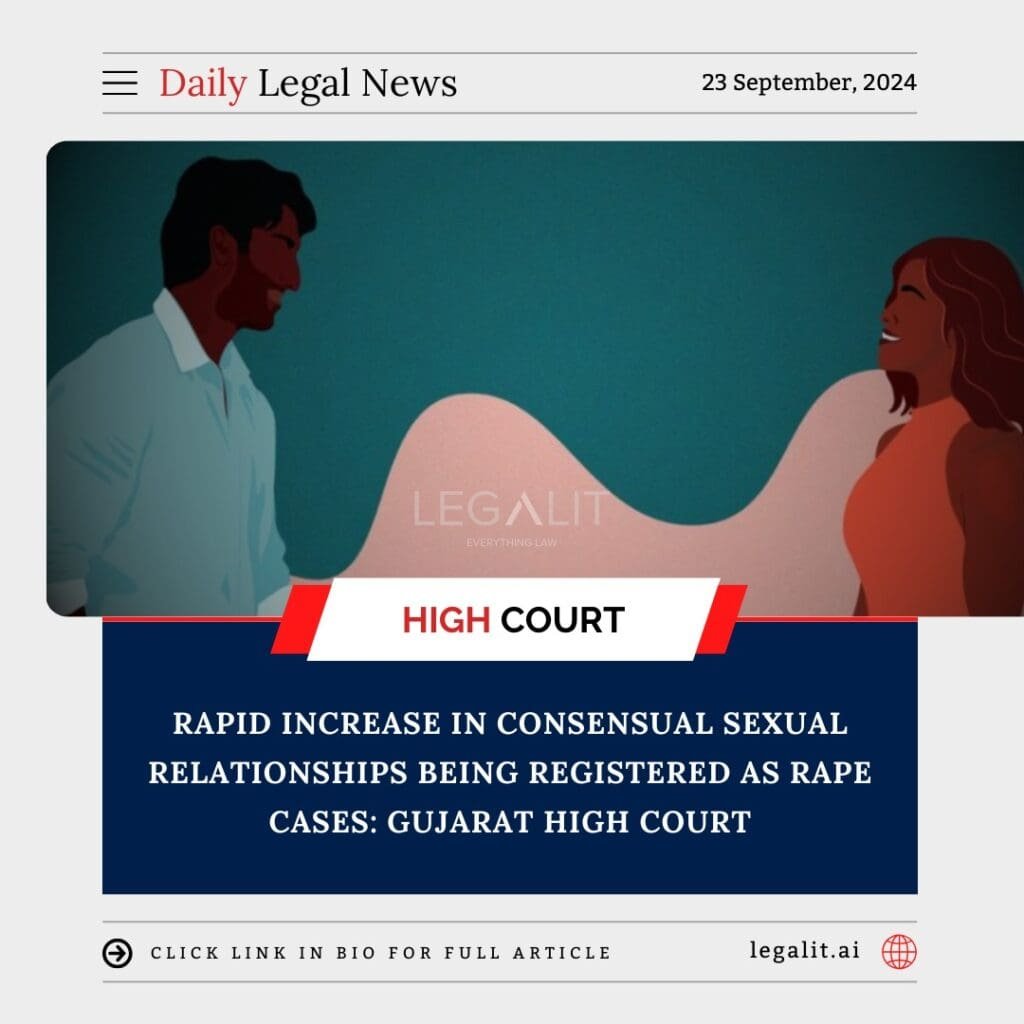
The Gujarat High Court has raised concerns about the growing number of consensual sexual relationships being falsely registered as rape cases. This observation highlights a complex legal and social issue, where consensual relationships, particularly those involving broken promises of marriage or misunderstandings, are increasingly resulting in rape allegations.
Context of the Court’s Observation
The observation was made during the hearing of a case where the court found that what was initially reported as rape was, in fact, a consensual relationship between two adults. The court emphasized the need to differentiate between actual cases of sexual assault and instances where the law is being misused to settle personal disputes or grievances.
Key Concerns Raised by the Court
- Misuse of Legal Provisions: The court noted that in many cases, consensual relationships are being reported as rape, particularly after the relationship sours or if marriage does not materialize as promised. This, the court observed, is a misuse of the legal provisions meant to protect actual victims of sexual violence.
- Burden on the Legal System: The filing of consensual relationships as rape cases places an unnecessary burden on the already stretched legal and judicial system. These cases divert resources away from genuine victims of sexual assault who need timely justice.
- Impact on Personal Liberties: The Gujarat High Court stressed that filing false cases not only affects the accused’s personal and professional life but also damages the credibility of the judicial process. The misuse of such provisions could lead to wrongful convictions and societal stigma for the accused.
- Need for Legal Distinction: The court suggested that there should be a clear legal distinction between consensual sexual relationships and cases where consent is obtained under false pretenses, particularly in cases where marriage is promised but not fulfilled.
Legal and Social Implications
- Review of Legal Definitions: The court’s remarks may prompt a review of how laws pertaining to sexual assault and rape are interpreted in cases involving broken promises of marriage. Legal clarity may help in distinguishing between genuine cases of sexual violence and disputes arising from consensual relationships.
- Protection of Genuine Victims: While addressing the misuse of rape laws, the judicial system must also ensure that genuine victims of sexual violence are not discouraged from coming forward. Any legal reforms must balance the need for protecting personal freedoms with safeguarding victims’ rights.
- Judicial Scrutiny in Sensitive Cases: The Gujarat High Court’s observation underscores the importance of careful judicial scrutiny in sensitive cases involving allegations of sexual assault, ensuring that the law is not misused as a tool for settling personal scores.
- Public Perception and Awareness: The issue also points to a need for increased public awareness about the seriousness of filing false cases and the repercussions it can have on both the accused and the legal system. It also emphasizes the importance of understanding the legal framework surrounding consensual relationships.
Conclusion
The Gujarat High Court’s concerns about the rapid increase in consensual sexual relationships being registered as rape cases brings attention to the need for a more nuanced understanding of consent, relationships, and legal obligations. While the law must protect victims of sexual violence, it is equally important to prevent its misuse to maintain the integrity of the judicial system. As these discussions evolve, there may be calls for legislative changes or clearer legal guidelines to address the complexities surrounding consensual relationships and rape allegations.